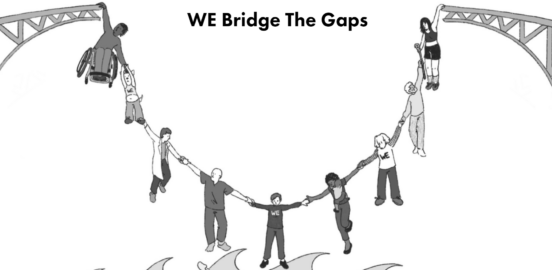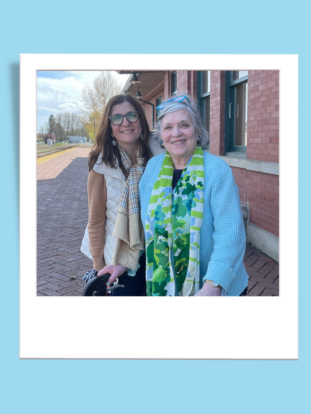Caregiving, Needs Navigation, Storytelling

Melissa Williams writes about why patient advocates also need to advocate for family caregivers.
By Melissa Williams
In honor of National Family Caregiver Month, it seemed only right to dedicate a blog post to the most passionate of our patient advocates: family caregivers. Family caregivers are the ones who ask the hard questions and keep track of the answers. They make the dreaded phone calls to insurance companies making sure a prescription or recommended service is covered. They see the full spectrum of the patient’s experience with illness and treatment outside the clinic walls. They navigate bill statement after bill statement. They seek out second opinions. They implement discharge instructions and perform the tasks of nurses in the home – such as medication management, symptoms monitoring, even administering injections. Like social workers, nurses, physicians and patients, family caregivers are critical members of the health care team, and they should be rightfully appreciated and honored not just this month, but every single day of the year.
Family caregivers are critical members of the health care team, and they should be rightfully appreciated and honored not just this month, but every single day of the year.
With advances in medicine, many adults and children are living longer with their serious and chronic conditions. Now, quality care delivery demands that we place equal emphasis on also supporting the quality of these longer lives to help patients and their families maintain their quality of life in the context of what is important to them. Older adults—regardless of race or ethnicity—are expected to live increasingly longer in future decades (1). But with longer lifespans, people are also living with and managing chronic, complex conditions and/or serious illnesses.
For these reasons, it’s inevitable that many of us will become a caregiver, a person in need of caregiving, or both. While family caregivers serve a vital role in providing the quality care that patients need, our healthcare, long-term care, and social systems are growing increasingly dependent on individuals who aren’t compensated or trained to carry out the complex caregiving tasks often expected of them. The general public is unaware of the challenges associated with family caregiving until they find themselves in a situation where they must transition to becoming caregivers for their aging parents or seriously ill child. Studies consistently show that the burdens of family caregivers are similar to those of patients: they experience a sense of isolation and have difficulty navigating the healthcare system; they suffer financial issues likely due to reduction or loss of employment as well as stress and depression; they struggle with communicating effectively with the healthcare team of their loved one (2). Because many caregivers are unaware of these challenges until they are confronting them head on, they often feel unprepared in taking on many of the responsibilities required in providing medical and other care at home for their loved one.
Family caregiving is well-positioned to be the next public health crisis facing our country—not only are family members unprepared, our nation is unprepared to care for an aging America. For this reason, we must begin developing and implementing policies and programs that support individuals and families. In September 2016, the National Academies of Science, Engineering, and Medicine (NASEM) issued a report titled Families Caring for an Aging America where they called for a transformation in the policies and practices affecting the role of families in the support and care of older adults, stating that today’s emphasis on person-centered care needs to evolve into a focus on person- and family-centered care.
We must do our part to integrate care specifically focused on supporting caregivers, so that they feel more confident in their caregiving role and can provide the best care to their loved ones without suffering adverse health consequences themselves. NPAF applauds the Senate for recently passing the Recognize, Assist, Include, Support, and Engage (RAISE) Family Caregivers Act (S. 1028) which calls for developing, maintaining, and updating a national family caregiver strategy and establishing a family caregiving advisory council that will provide advice to the HHS Secretary on recognizing and supporting family caregivers; we urge for the same outcome in the House (H.R. 3759) where the bill has been referred to the House Committee on Education and the Workforce. NPAF also applauds the 39 states and territories that have enacted the Caregiver Advise, Record, Enable (CARE) Act. The CARE Act elevates the prominence of family caregivers and recognizes their critical role as partners in care delivery.
NPAF will be releasing a new family caregiving issue brief and policy principles, in early 2018, that will provide an overview of family caregiving in the US—highlighting the impact of caregiving and the need for family-centered policies to address caregiver challenges, all while underscoring the valuable part caregivers play in the lives of the patients we serve. Including family caregiving as part of NPAF’s policy principles is integral to our mission of bringing person-centered care everywhere. To best care for our patients, we must also care for our caregivers. We must encourage our caregivers to use their voice, not to just advocate for their loved ones, but to also advocate for themselves.
Caregiving, Needs Navigation, Storytelling
Caregiving, Health Literacy, Needs Navigation, Trust
Caregiving, Storytelling, Trust
Caregiving


